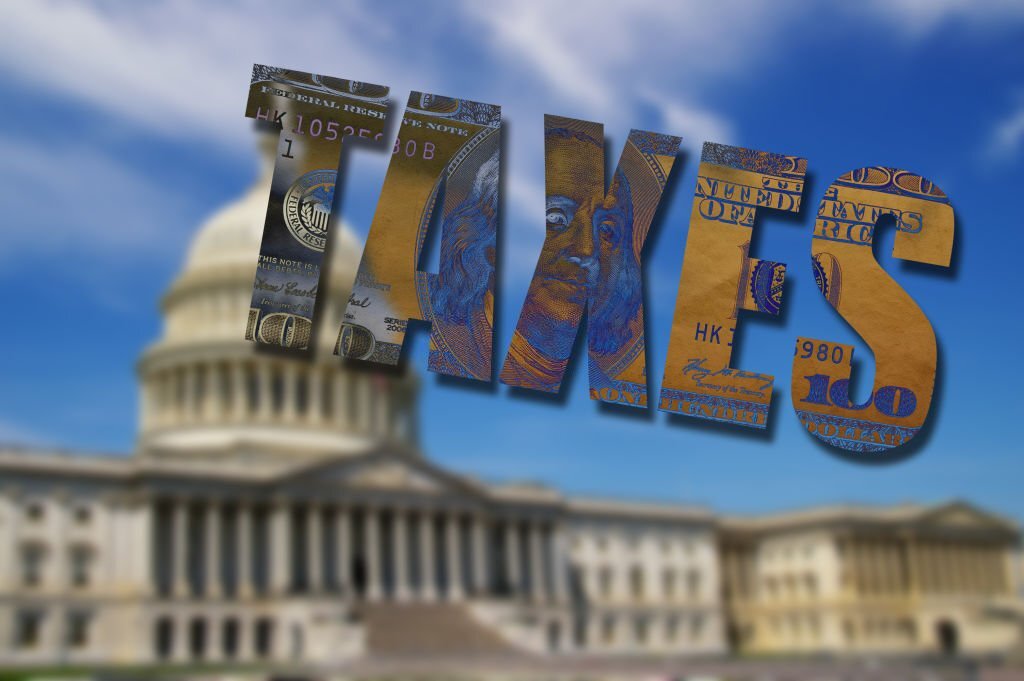Erik Wasson
Bloomberg News
(TNS)
The cost of extending the 2017 tax cuts for households, small businesses and the estates of wealthy individuals enacted under President Donald Trump has expanded to $4.6 trillion, according to new estimates from Congress’ fiscal scorekeeper.
That puts a massive price tag on what is likely to be a top issue in Washington next year as lawmakers grapple with the future of Trump’s tax cuts, which are slated to expire at the end of 2025.
Congress will also confront the deficit impact of renewing the cuts, as the U.S. faces as “daunting” fiscal outlook, Congressional Budget Office Director Phillip Swagel said in an interview at Bloomberg News’s Washington bureau on Wednesday.
Extending the personal income tax cuts will cost $3.8 trillion alone. Other tax cuts set to expire in 2025 include restrictions on the estate tax and valuable write-offs for small business owners.
At a recent fundraising event at Mar-a-Lago, the former president asked several oil company executives in attendance to, “raise $1 billion to return me to the White House,” according to the Washington Post. He suggested that would be a ‘deal,’ because “the taxation and regulation they would avoid, thanks to him.”
The Congressional Budget Office’s estimate, released Wednesday, is more than double the $1.9 trillion cost of the original Trump tax cuts — a more expansive bill which also included permanent reductions in corporate taxes.
The anticipated cost of extending the tax cuts could move lawmakers to seek ways to offset the deficit impact through spending cuts or by scaling back the size of the rate reductions. President Joe Biden has proposed nearly $5 trillion worth of new tax hikes on businesses and high-earners. Presumptive Republican nominee Trump has pledged to renew the tax cuts, but hasn’t released a specific tax plan.
The expiring portion of the tax cuts also includes reductions in individual tax rates and an expansion of the child tax credit. Last year, CBO estimated renewing the sunsetting tax cuts would cost $3.5 trillion.
Economic growth
Swagel said personal income tax cuts don’t stimulate economic growth as much as the permanent business tax cuts.
He said that CBO raised its projection for this year’s budget deficit upward from the $1.6 trillion estimate issued in February, approaching $2 trillion. The recently enacted $95 billion Ukraine, Israel and Taiwan aid package, an FDIC bank rescue and increased federal student loan forgiveness all are worsening the deficit outlook for the year and decade.
Swagel said on Bloomberg Television’s “Balance of Power” that the sooner lawmakers act to address deficits, the less painful spending cuts or tax increases will be.
“We know the current situation is not sustainable. But we don’t know when that moment will come, when markets lose faith in the willingness of the United States to take on the deficit,” he said.
CBO in February said deficits would rise to $2.6 trillion by 2034. At that point, deficits would be above 6% of gross domestic product, a level reached only during World War II, the Great Recession and the 2020 pandemic. CBO also found that debt held by the public would rise by 2034 to 116% of GDP, the highest ever recorded.
Immigration
Swagel also addressed the economic effects of immigration, pointing to CBO research that found the influx of foreign workers is expected to boost GDP by about $7 trillion over the next decade by swelling the labor force and increasing demand.
While those findings spurred a flurry of fresh number-crunching among Wall Street economists, prompting some to revise up their economic forecasts, Swagel said the impact from immigration on inflation has so far been limited.
_____
(With assistance from Kailey Leinz and Augusta Saraiva.)
_____
©2024 Bloomberg L.P. Visit bloomberg.com. Distributed by Tribune Content Agency, LLC.
Thanks for reading CPA Practice Advisor!
Subscribe Already registered? Log In
Need more information? Read the FAQs




